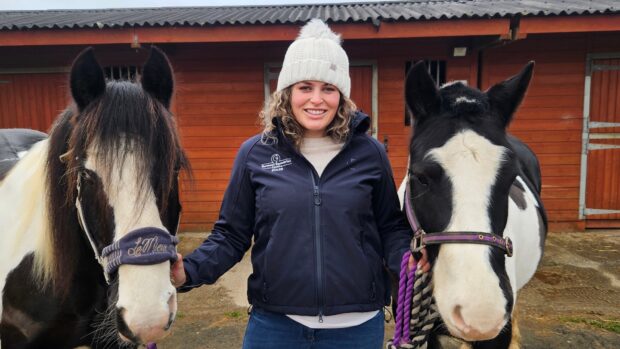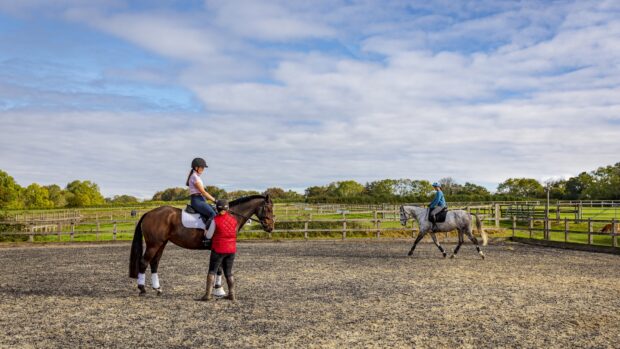As the population gets heavier, riding schools are having to adopt new measures for larger clients. Proprietors are being forced to have “delicate” conversations with overweight riders, keep scales in the office and source larger animals.
In a report released last month, the Government said 61.3% of adults and 30% of children in England are “overweight or obese”, while the average clothes size for women is 16, compared with a 12 20 years ago.
This has been reflected in equestrianism. Out of 14 riding schools across the UK contacted by H&H, 10 said they had seen an increase in heavier riders.
Last month, a survey on rider weight by Duchy College in Cornwall was picked up by the national press, with headlines such as “The horses saddled with our obesity epidemic” and “People are just too fat to be riding”.
The study by Dr Hayley Randle and student Emma Halliday, which was published in the Journal of Veterinary Behaviour, looked at 152 riders and horses in Devon and Cornwall. They found a third of riders were too heavy for their horses.
The British Equestrian Veterinary Association (BEVA) president says riders should weigh no more than 15% of their horse’s weight. This means a 600kg horse should carry a maximum of 90kg (14st), or the rider will be putting the animal’s back and legs under excess strain.
But a third of riders in Dr Randle’s research weighed more than that 15% — putting equine welfare at risk.
“I wasn’t surprised by the result,” she said. “Weight is an issue that needs to be addressed. My main worry is the amount of stalwart horses that plod along carrying more than they should be, with riders not realising.”
Many riding schools told H&H they had been forced to turn down riders recently, with enquiries from people weighing up to 20st.
Several, including Sunshine Riding in Luton, Cavendish Farm in Derbyshire and Mount Mascal in Kent, said they are now looking to buy larger, sturdier animals — and not just for adult clients.
And don’t be surprised if you’re weighed at a riding school nowadays.
BEVA’s president says lameness and back problems are often caused by heavy riders, and that some are not suited to their horses.
“Perhaps as an industry we should look to develop better weight guidelines,” he said. “Often a problem is not an overweight rider, but a rider on a too small horse.”
This news story was first published in Horse & Hound magazine (11 April 2013)




